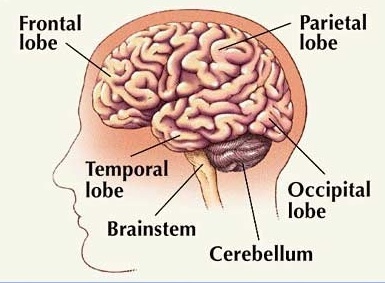Frontotemporal Dementia (FTD) Causes, Symptoms, Diagnosis and Treatment

What is Frontotemporal Dementia FTD?
Frontotemporal dementia (FTD) is the clinical presentation of frontotemporal lobar degeneration, which is characterized by progressive neuronal loss predominantly involving the frontal and/or temporal lobes, and typical loss of over 70% of spindle neurons, while other neuron types remain intact.
The disorders grouped under FTD fall into three subtypes:
- Behavior variant frontotemporal dementia (bvFTD)
- This is characterized by prominent changes in personality, interpersonal relationships and conduct
- In bvFTD, the nerve cell loss is most prominent in areas that control conduct, judgment, empathy and foresight, among other abilities.
- Primary progressive aphasia (PPA)
- affects language skills, speaking, writing and comprehension
- Disturbances of motor (movement or muscle) function.
- Amyotrophic lateral sclerosis (ALS)
- Corticobasal syndrome
- Progressive supranuclear palsy
Causes of Frontotemporal Dementia FTD:
In frontotemporal dementia, the frontal and temporal lobes of the brain shrink.
A variety of mutations on several different genes have been linked to specific subtypes of frontotemporal dementia. However, more than half the people who develop frontotemporal dementia have no family history of dementia.
There are no known risk factors for any frontotemporal degenerations except for a family history or a similar disorder.
Symptoms of Frontotemporal Dementia FTD:
The signs and symptoms may vary greatly from one individual to the next.
Generally, signs and symptoms may include:
- Behavioral changes
- Increasingly inappropriate actions
- Loss of empathy and other interpersonal skills
- Lack of judgment and inhibition
- Apathy
- Repetitive compulsive behavior
- A decline in personal hygiene
- Changes in eating habits, predominantly overeating
- Lack of awareness of thinking or behavioral changes
- Speech and language problems
- In semantic variant of PPA, individuals lose the ability to understand or formulate words in a spoken sentence.
- In nonfluent/agrammatic variant of PPA, a person’s speaking is very hesitant, labored or ungrammatical.
- Movement disorders
- Tremor
- Rigidity
- Muscle spasms
- Poor coordination
- Difficulty swallowing
- Muscle weakness
Diagnosis of Frontotemporal Dementia FTD:
No single test can identify frontotemporal dementia, so doctors attempt to identify certain characteristic features while excluding other possible causes.
The following tests and exams are conducted:
- Blood tests, to see if one’s symptoms are being caused by a different condition, such as liver or kidney disease
- Neuropsychological testing, to differentiate between the different types of dementia at an early stage.
- Brain scans
- MRI
- CT scan
- PET
Treatment of Frontotemporal Dementia FTD:
Frontotemporal dementia can’t be cured. There is no effective way to slow its progression. Treatments available work alleviating symptoms.
- Medications
- Some types of antidepressants, such as trazodone (Oleptro), may reduce the behavioral problems associated with frontotemporal dementia.
- Selective serotonin reuptake inhibitors (SSRIs) — such as sertraline (Zoloft), paroxetine (Paxil) or fluvoxamine (Luvox) — also have been effective in some people, although study results have been mixed.
- Antipsychotic medications, such as olanzapine (Zyprexa) or quetiapine (Seroquel), are sometimes used to combat the behavioral problems of frontotemporal dementia.
- Therapy
- Speech therapy
By : Natural Health News




